History and present informatization of educational institutions of small towns
Part One: USSR
Probably should be defined with the term informatization. I will understand here by them the technical means and their interrelation in the educational process.
As a matter of fact, all technical means can be divided into two large classes, digital and analog.
Naturally, it all started with analog tools. I will not delve into them especially, because they include such things as from a notebook and ending with slide projectors and tape recorders. The younger ones are not worth mentioning, but the older ones (by class) of them are diascopes, radio stations, epidiascopes, movie cameras and the like. Actually in the USSR there was a whole zoo, and supplies were centralized. Here I will allow you to set a picture of the most ancient and rare aggregate:
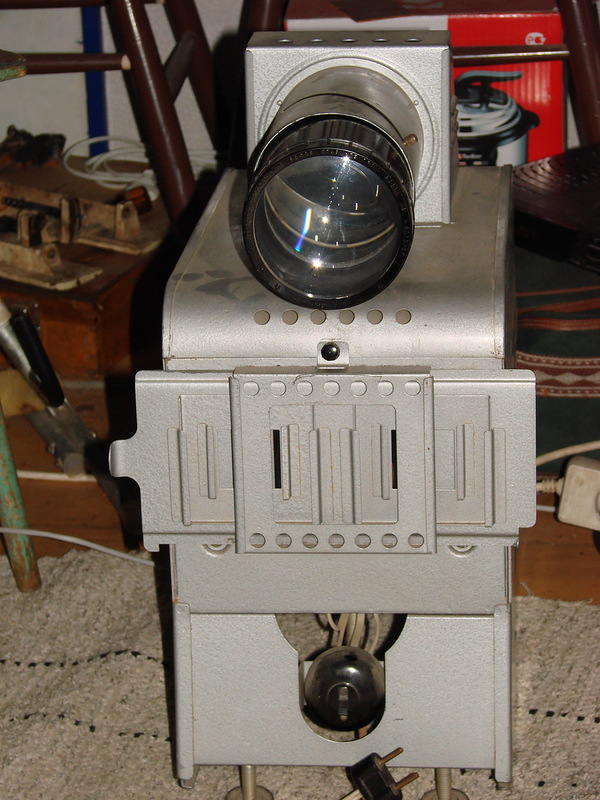
')
Do not be scared. This is not a photon gun and the alpha version is far away. This is a 1971 epidemioscope with a 500 watt incandescent bulb (by the way, it is still alive).
And the Linguaphone study, received at the beginning of 80 (more precisely, what was left of it):
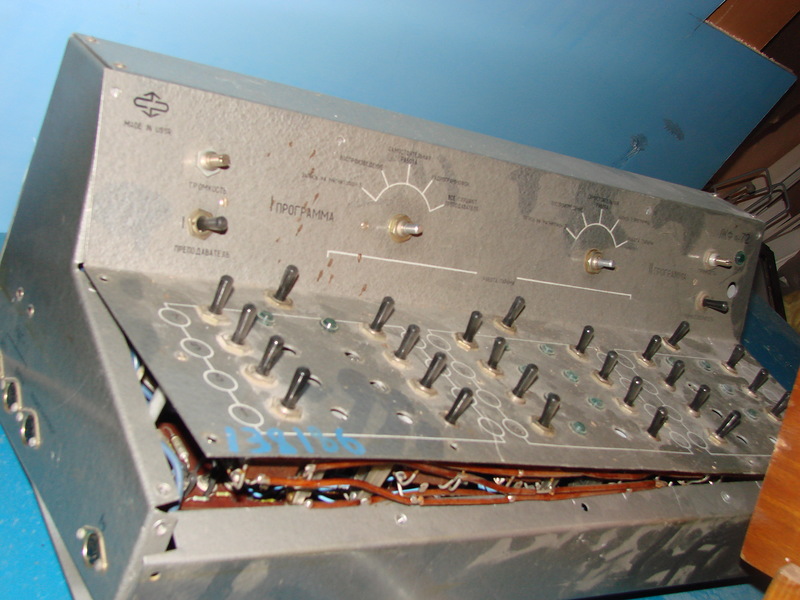

Actually, this gray box was loaded onto the teacher’s table and from it, as if from a spider, wires in iron pipes went to the desks nailed to the floor, but with such boxes:
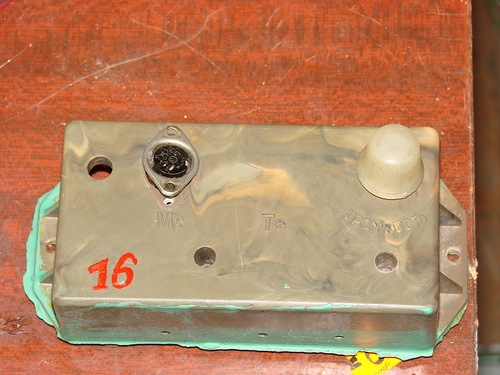
Here with this content:

To which, in fact, these headphones were connected:

And such microphones:

A teacher, a teacher worked as a telephone operator.
The cameras were even more ancient, but I will not give them pictures (last year they were commissioned in color). At that time, epidiascopes, diascopes, and camera sets served as a substitute for projectors. And they showed the history of the revolution, something about Lenin, about pioneers and October, about the Second World War, etc.
The age of electronic-digital technology in schools began with such
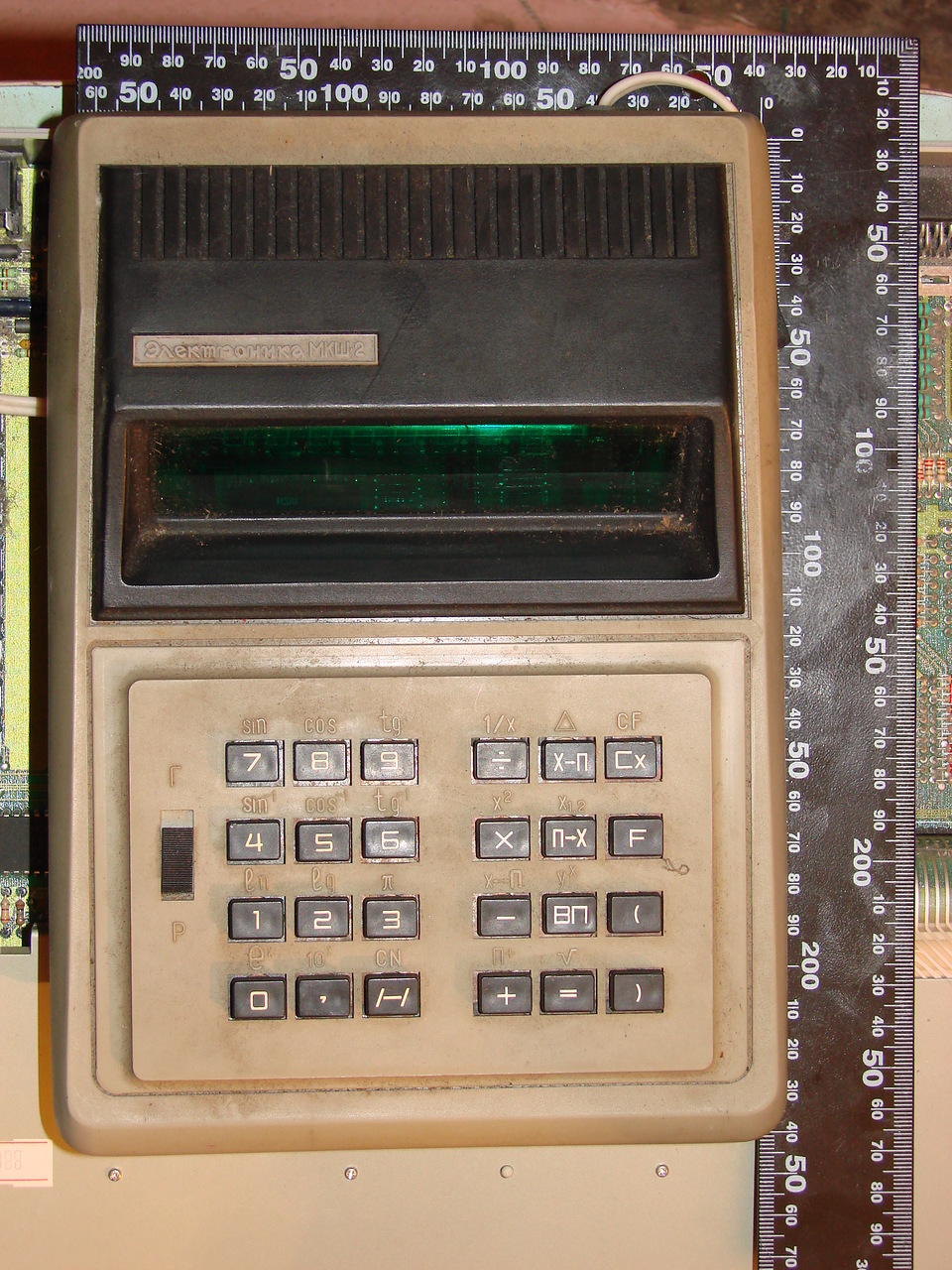
They were able to not enough. 29 automatic functions, and nice, were able to cheat a system of linear equations and search for the roots of a quadratic equation.
They were located on the tables of students.
Were fed from such a power unit, located in the teacher's table:
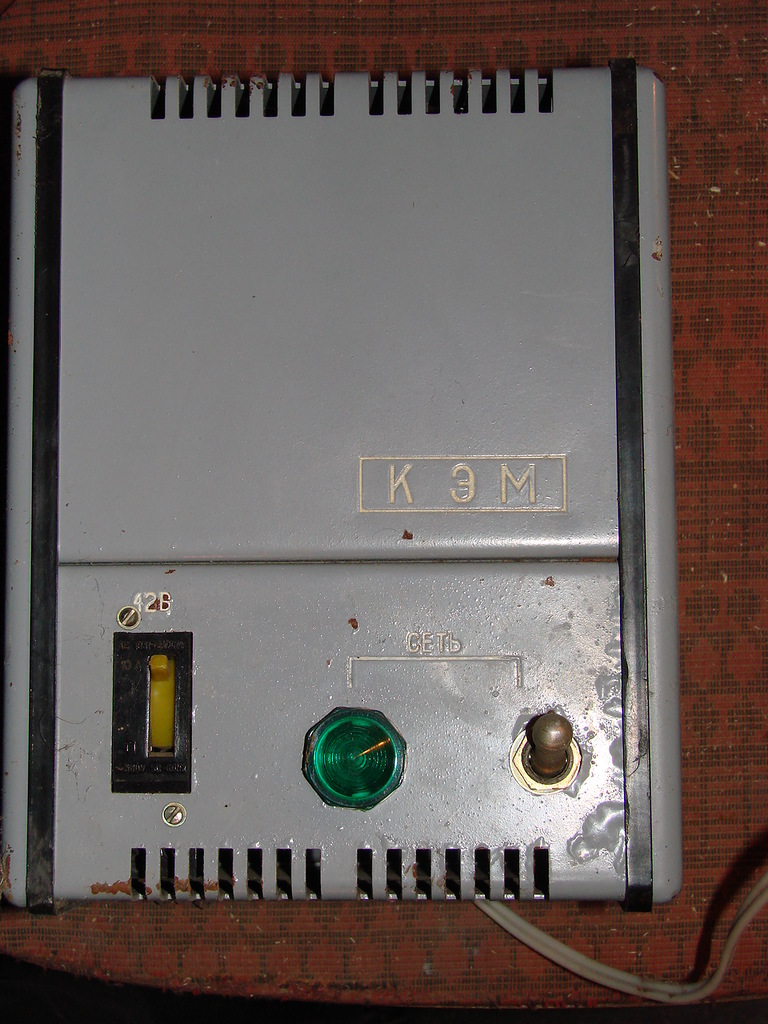
From it (already according to the standard scheme of that time) in iron pipes to rigidly attached to the floor by means of Soviet corners and Soviet screws (by the way, the same cabinets were fastened), desks, wires APPV 2 * 2.5 with 42 volts. These are the very pipes sticking out of the floor:
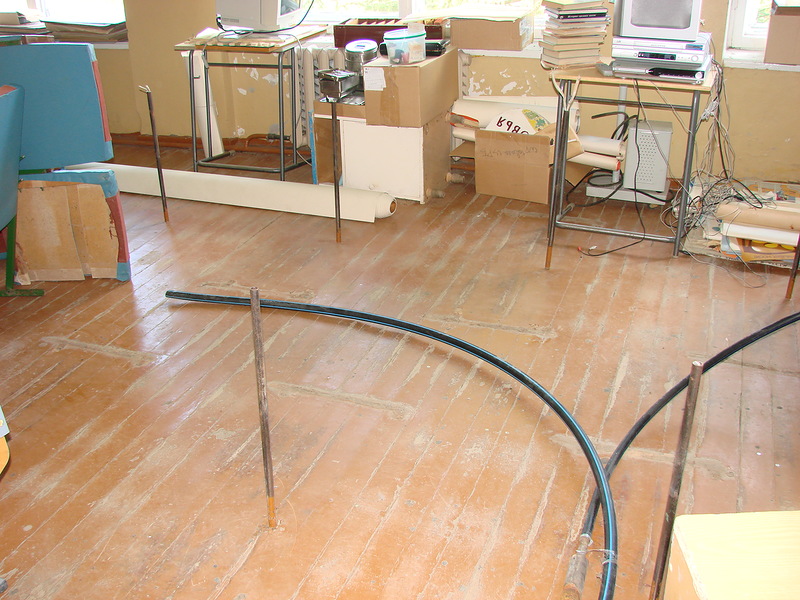
For your information, already at that time they took care of the schoolchildren and fully protected their UZO of this kind:
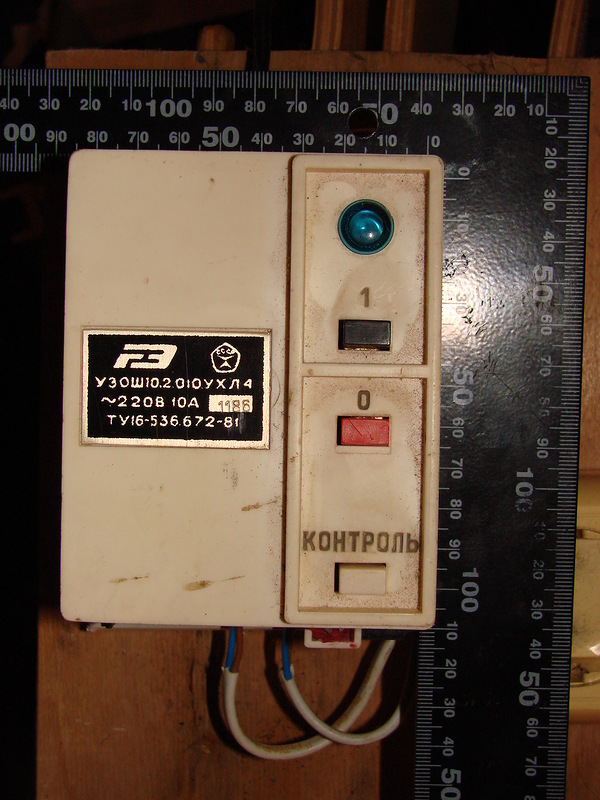
Here with this content:
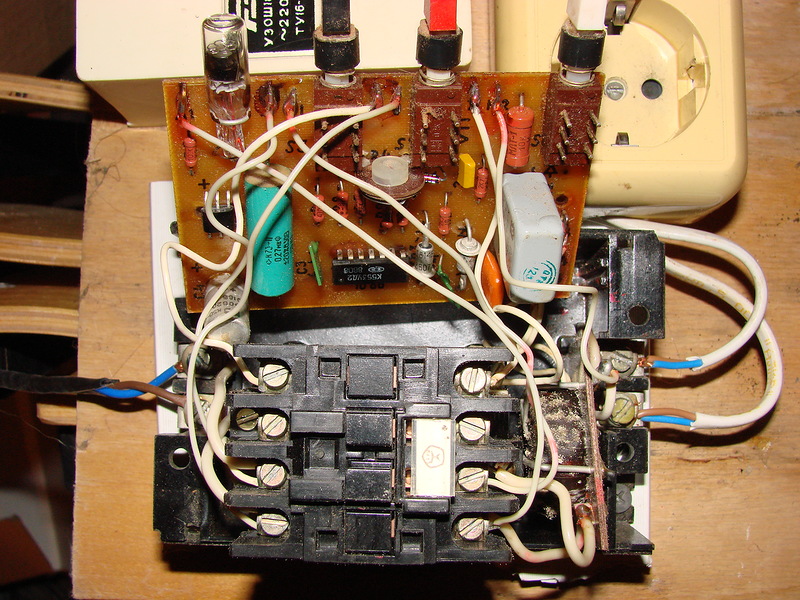
To its credit, it still works properly (it was worth drying only the coils).
Further, in 89 (plus or minus a year and a half), ATARI 65XE appeared in the school (and even then, only where large enterprises were located):
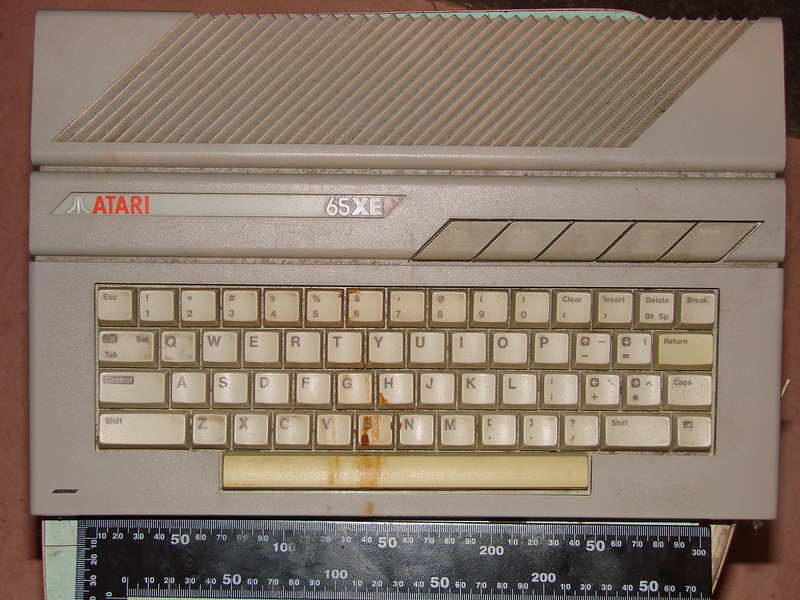
Here with this internal device:
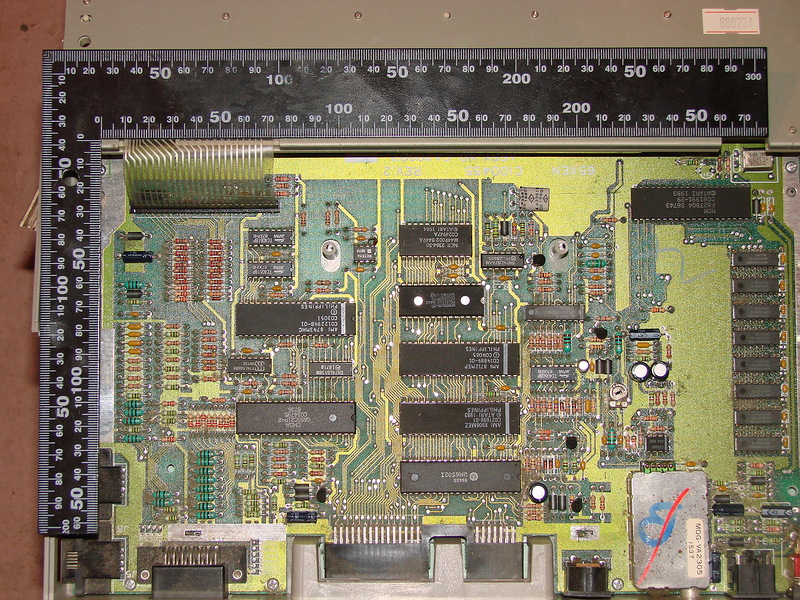
A converted 409d TV set served as a monitor for him:

The whole alteration consisted in cutting the video signal track on the TV and matching it with the computer output with the help of such a simple scheme:
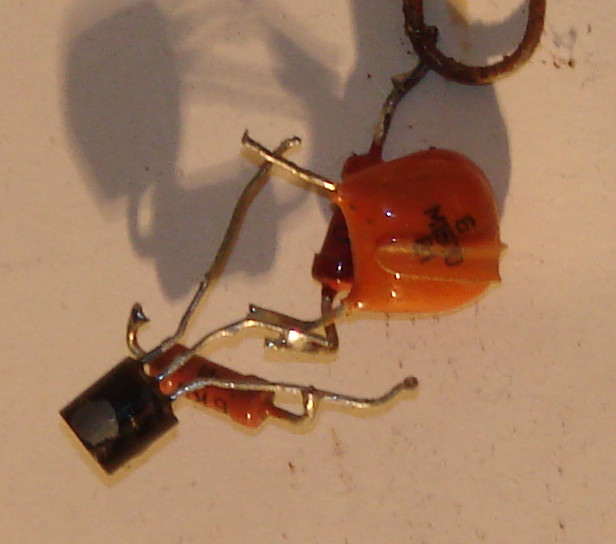
The monitor was located on such a box (for sure, the students themselves were made by the students in the classroom):
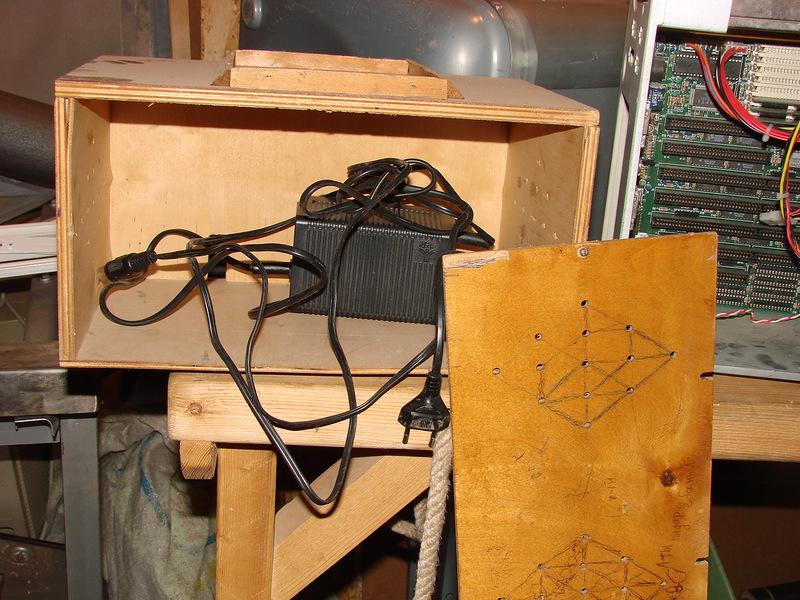
In 2007 I was told to restore the TVs, which was done. But after some time, 80 percent "mysteriously disappeared."
In the box, the same power supply and tee. There is no tee in the picture. All gone into business.
The teacher, of course, the monitor was more. Here he is:
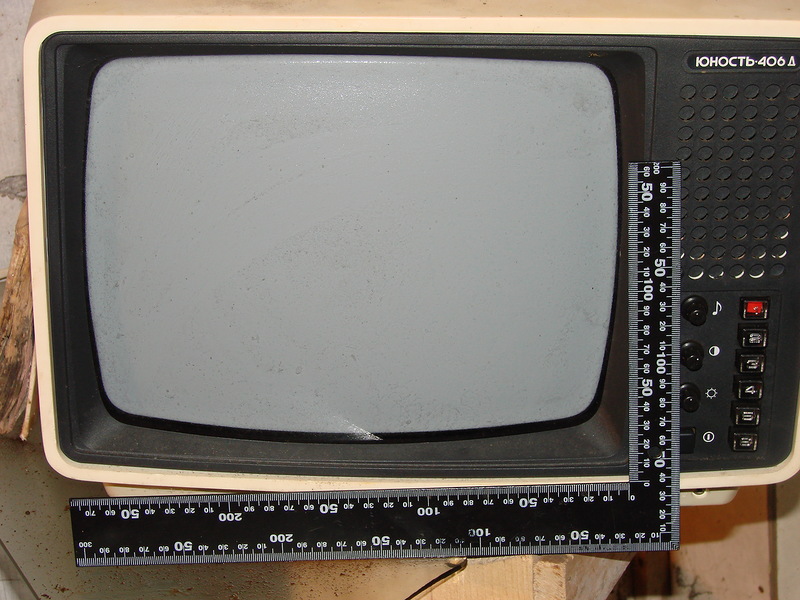
All computers in a computer class were connected to each other in a local area network (after 90 years, judging by chip markings), through com-ports, using such a wonderful devays, the development of a cooperative:

And here is the stuffing of this device:
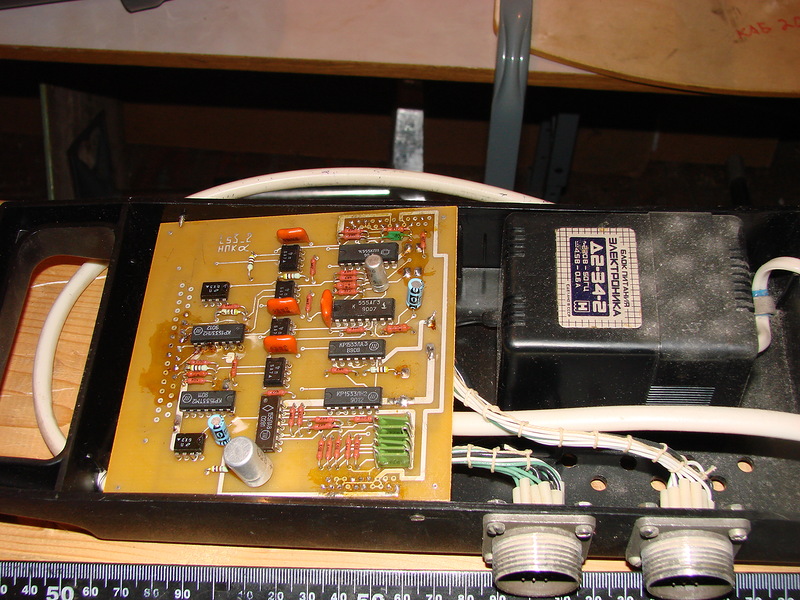
There were printers:
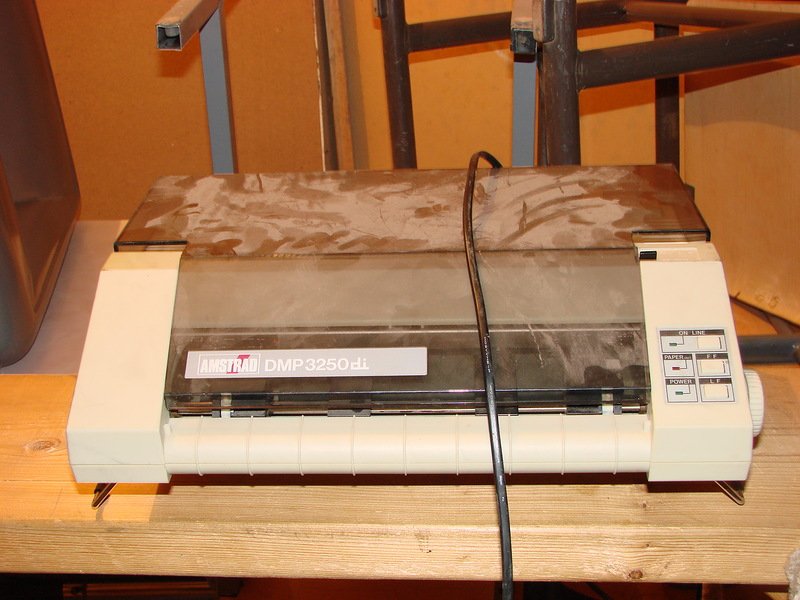
Back view:
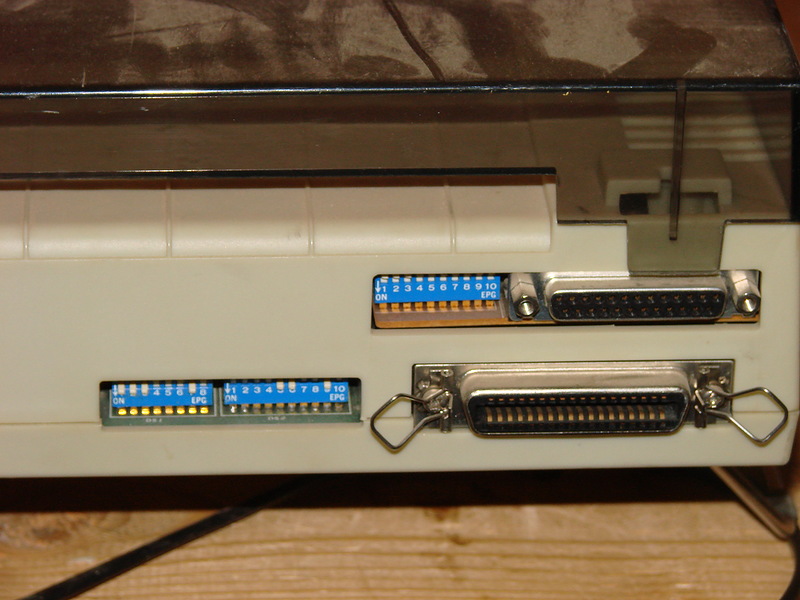
As you can see, it could be configured without documentation.
A reader from a magnetic tape was also attached to atari (by the way, never !!! were not used):
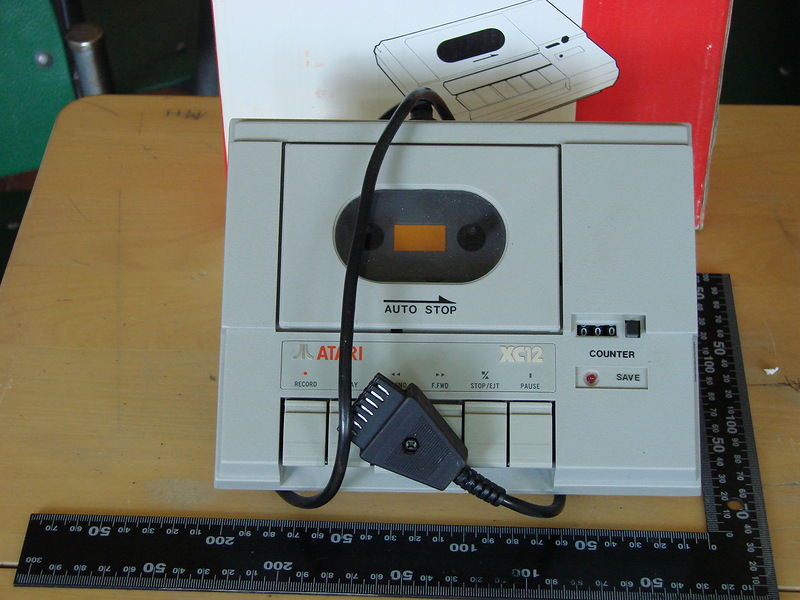
And joysticks (they just yuzali, but the same is not often):
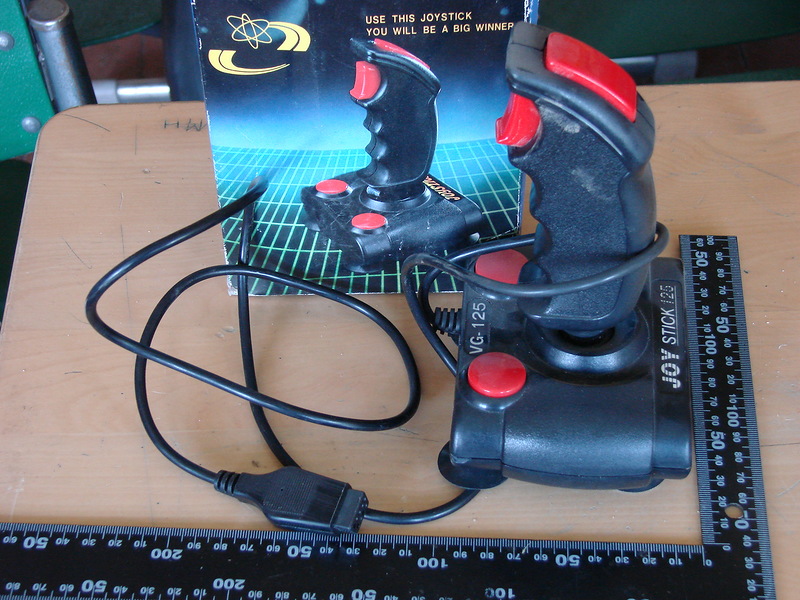
Well, where at the time without bedbugs:
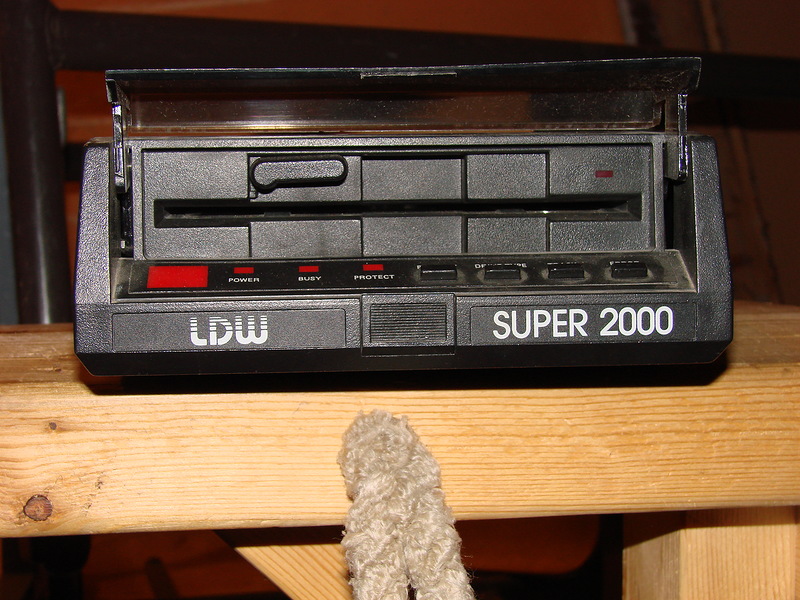
Cartridges unfortunately not preserved.
And all the floppy disks with the application software are damaged.
Even then they used such computers here, without any identifying marks:
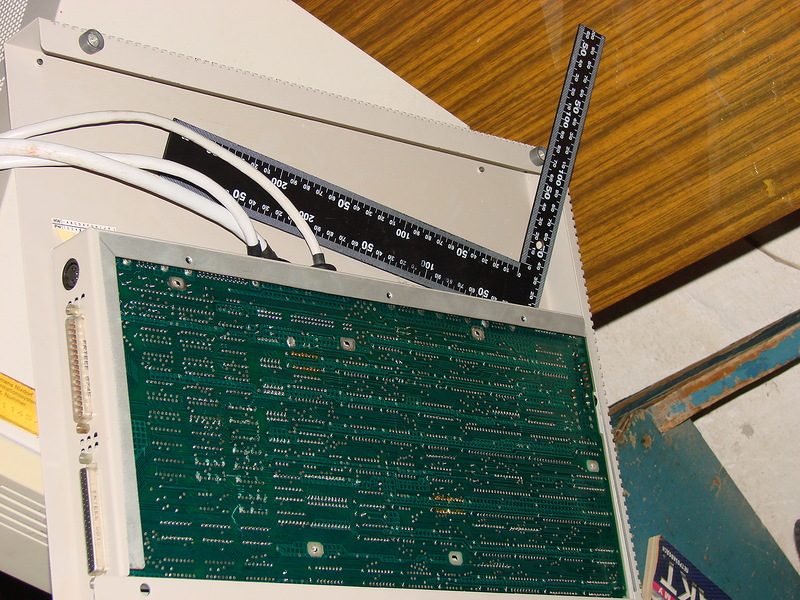
Filling:
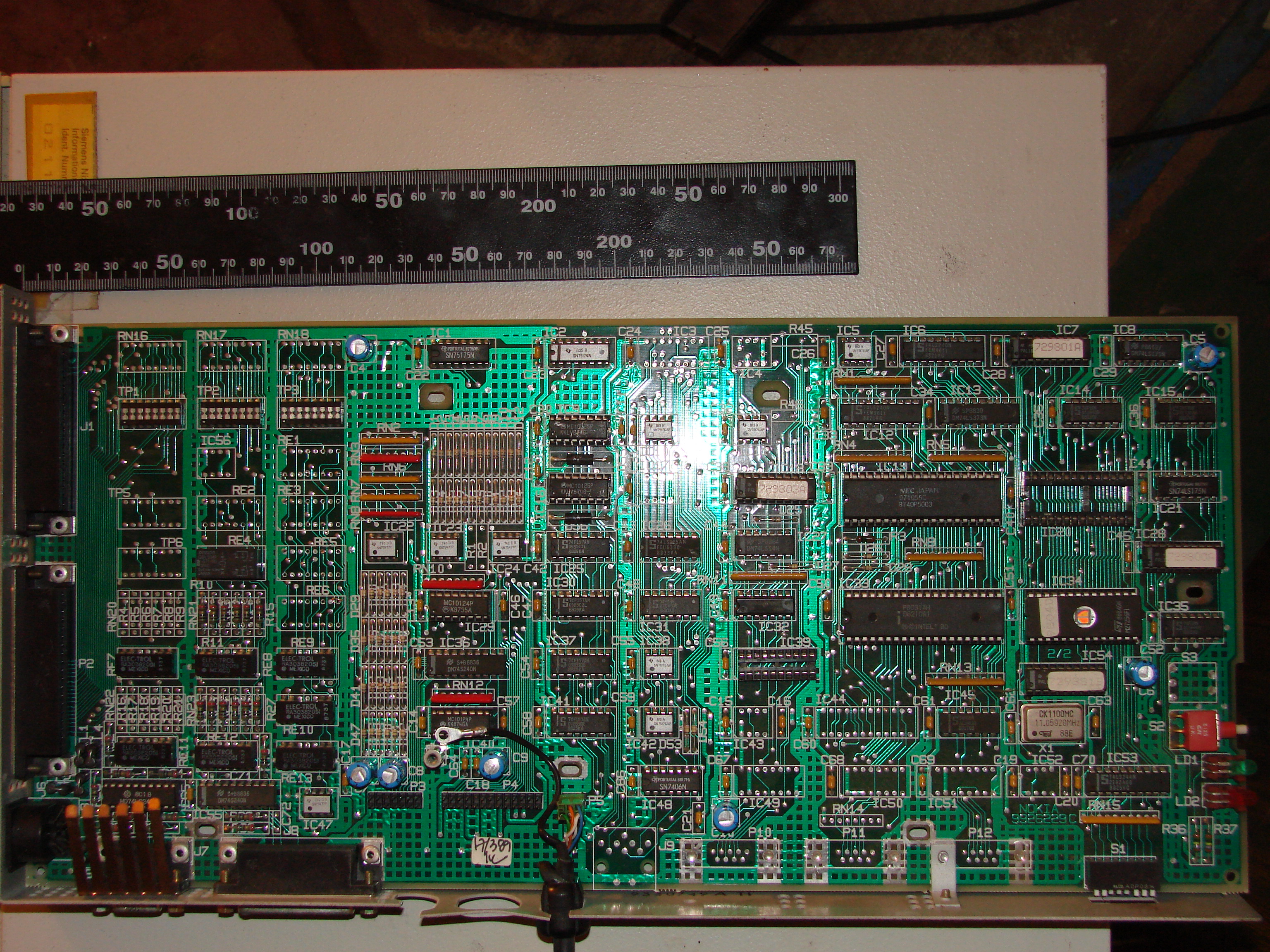
More Macs were running too:
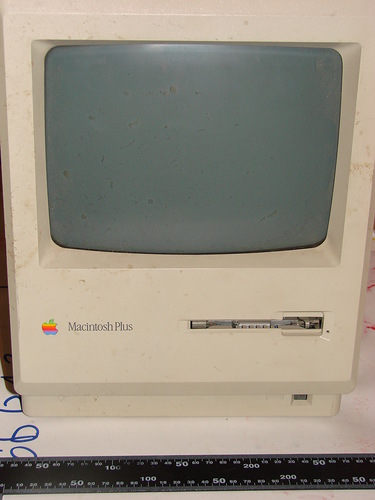

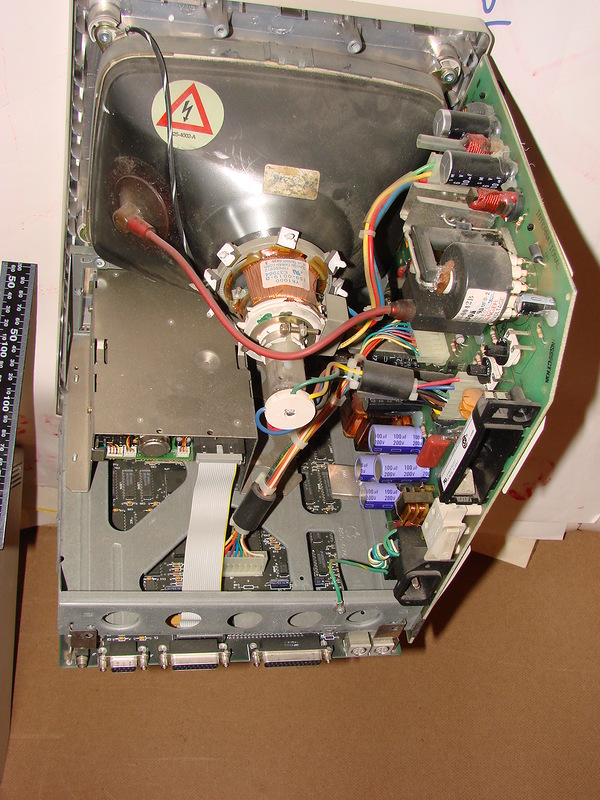
Here on the back wall of the painting creators:
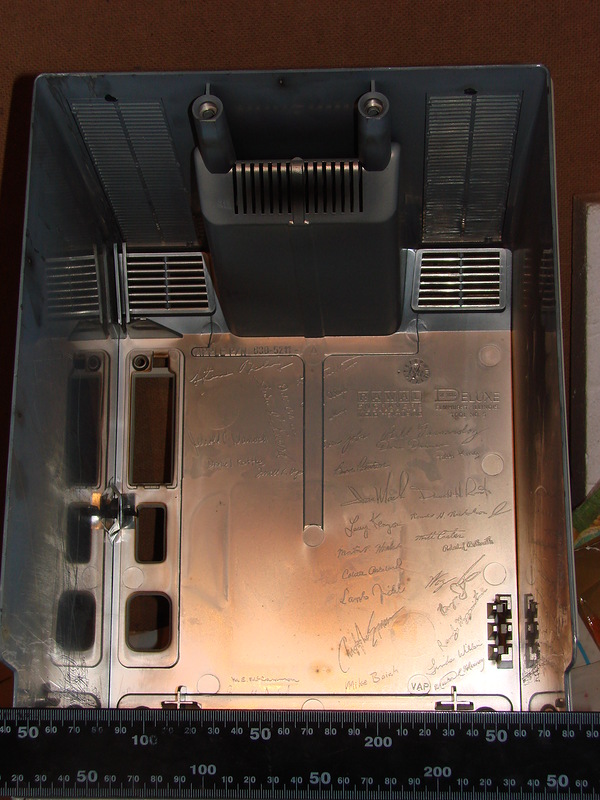
And one more:

Programmed then on basic.
Well, on it I will finish the first part. The second will be about Russia already. Continued in a week.
Source: https://habr.com/ru/post/193496/
All Articles